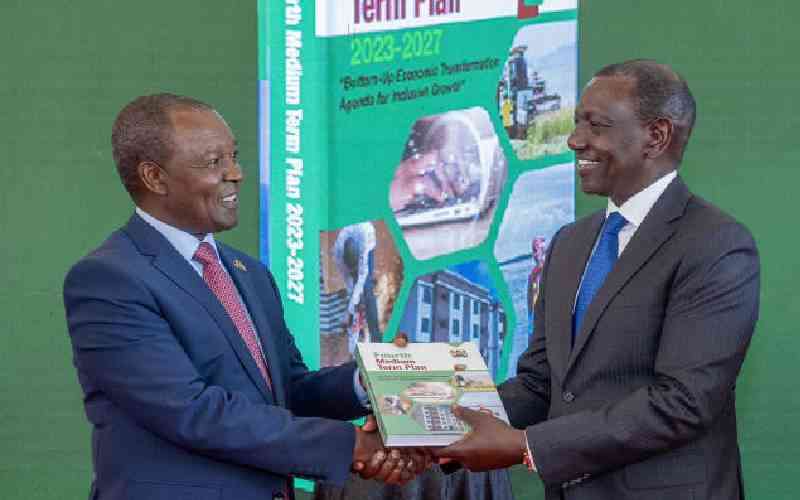It is ironic that on the day the Kenya Revenue Authority (KRA) celebrated the achievement of exceeding its first quarter tax collections target, the Auditor General tabled a report showing a huge loss of public funds.
Inexplicably, the report shows, the government not only lost Sh303 billion, but relevant ministries could only account for six per cent of the Sh920 billion budget.
Mind boggling
Performance appraisals of the chief accounting officers in all ministries should, without fear or favour, include how effectively the ministries use funds allocated them for services and development.
This, surely, must send a shiver down the country’s collective spine considering that this year’s budget stands at Sh1.6 billion.
This means that unless state institutions with oversight of public funds expeditiously wake up, the country is in for even more mind-boggling losses.
Were that allowed to happen, it would be only a matter of time before an increasing number of taxpayers consider they have a right to find ways to avoid paying taxes.
This inability to account for the monies makes nonsense of the financial management system intended to seal loopholes through which public funds can be siphoned. Even worse, it kills provision of vital services and undermines efforts to widen the tax bracket.
Worldwide, tax compliance is tightly linked to the public perception of how the State uses tax revenues.
Governments with high incidences of graft invariably attract low rates of tax compliance. The low tax compliance rates in Italy and Greece are reminders that even in relatively developed countries, citizens can still hide taxes. Back home, the tragedy is that the ministries are the very ones from whom Kenyans expect essential services.
Thorough shake-up
They include the ministries of health and education. In the case of the latter, the quality of education offered in public schools is deplorable, as it is producing functional illiterates after eight years of schooling.
But perhaps the people to whom an explanation is owed most are the thousands of Kenyans suffering and dying from easily curable diseases that cannot be treated because money allocated to buy medicine has been stolen.
The inclusion of the roads ministry among the top four is also a serious indictment of the country’s commitment to building the infrastructure necessary to realise Vision 2030.
Indeed, the question that should be answered fast is whether the same ministry can be trusted to deliver on the various — even larger — infrastructure projects that are both on-going and on the drawing board, without it undergoing a thorough shake-up.
Stay informed. Subscribe to our newsletter
This should, at the very least, involve the systems and people who were in the ministry during the goings on that are under question.
To the internally displaced persons, the report that money meant to get them out of the camps found its way into individual pockets must come as yet another pill too bitter to swallow.
But where will their help come from?
 The Standard Group Plc is a
multi-media organization with investments in media platforms spanning newspaper
print operations, television, radio broadcasting, digital and online services. The
Standard Group is recognized as a leading multi-media house in Kenya with a key
influence in matters of national and international interest.
The Standard Group Plc is a
multi-media organization with investments in media platforms spanning newspaper
print operations, television, radio broadcasting, digital and online services. The
Standard Group is recognized as a leading multi-media house in Kenya with a key
influence in matters of national and international interest.
 The Standard Group Plc is a
multi-media organization with investments in media platforms spanning newspaper
print operations, television, radio broadcasting, digital and online services. The
Standard Group is recognized as a leading multi-media house in Kenya with a key
influence in matters of national and international interest.
The Standard Group Plc is a
multi-media organization with investments in media platforms spanning newspaper
print operations, television, radio broadcasting, digital and online services. The
Standard Group is recognized as a leading multi-media house in Kenya with a key
influence in matters of national and international interest.









